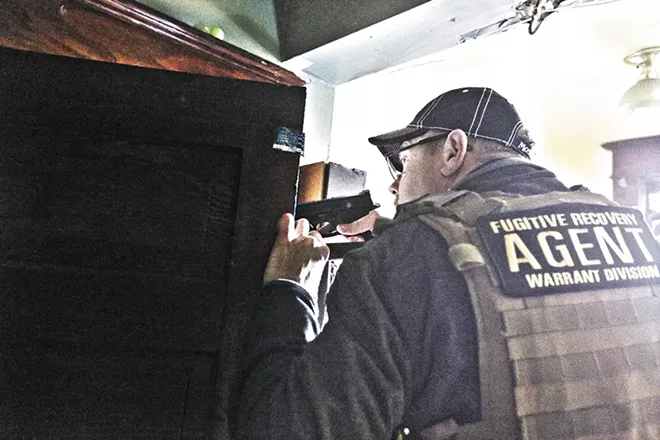You can hire fugitive recovery services for various purposes. In this article, you will learn about the Laws governing fugitive recovery services. You will also learn about their fees and success rates. After reading this article, you will be well-equipped to make a wise decision about hiring a fugitive recovery service. So, what should you know before hiring one? Read on.

Laws governing fugitive recovery agents
There are several laws governing the work of fugitive recovery agents. The law requires surety recovery agents to wear a uniform approved by the state commissioner of public safety. They cannot use a police uniform or give the impression that they are law enforcement officers. A vest bearing the words “Bail Bond Recovery Agent” must be worn by surety recovery agents in Washington state. These laws do not allow surety recovery agents to enter private property without permission.
Federal, state, and local laws govern the work of fugitive recovery agents. Some states prohibit these agents from carrying firearms, while others allow them to carry tasers or spray. Also, bounty hunters must follow specific state regulations. For example, some states do not allow bounty hunters to carry firearms and require them to wear clothing identifying them as bail bond agency’s bail recovery agents. In addition, many states don’t allow fugitive recovery North Carolina agents to enter fugitives’ homes. For example, in Florida, bounty hunting is prohibited.
The law governing the practice of fugitive recovery agents is quite complicated. Federal law requires that fugitive recovery agents be licensed surety insurance producers. Moreover, it gives commercial surety agents the right to use any recovery agent, provided they have a list of licensed agents. Butte, Montana, for example, has recently had a fatal shooting involving a bondsman and convicted felon. Although the crime was not intentional, the alleged fugitive recovery agent had acted unlawfully and violated the homeowner’s rights.
The success rate of fugitive recovery agents
For fugitives who have escaped, bail bond agents hire fugitive recovery agents to bring them back to justice. Though these agents face different challenges, they all have the same common goal: to bring back fugitives who have escaped. The success rate of fugitive recovery agents is usually high. It is essential to understand that there are specific laws and procedures that fugitive recovery agents must follow to succeed.
A fugitive recovery agent is also known as a bounty hunter. The job description of a fugitive recovery agent is to track down fugitives, capture them, and return them to the bail agency. In return, fugitives pay these agents a percentage of their bail, which they call the bounty. To become a fugitive recovery agent, you must meet your state’s minimum requirements and get a license to operate.
Fugitive recovery agents have the knowledge and experience to locate missing people and return them to justice. If you’re concerned about your friend’s welfare, you can hire a fugitive recovery agent to find him and return him to justice. These agents can be very effective in tracking down missing persons. If you’ve ever been a bail bondsman, you know how frustrating it can be to be stranded with your money. With the help of a fugitive recovery agent, you can rest assured that the right person will be found.
Fee structure of fugitive recovery agents
Bounty hunters or fugitive recovery agents are private individuals who track down fugitives. Bail bond agencies pay these individuals to find and bring fugitives to justice. Bounty hunters can charge anywhere from 10 to 20 percent of the total bail amount. Fee structures for fugitive recovery agents vary based on jurisdiction. For example, if a fugitive escapes, a bounty hunter may charge between $1 and $20 per hour.
Bounty hunters may use reasonable force to apprehend fugitive criminals, but using more force than necessary could result in a lawsuit or criminal charges. In addition, bounty hunters must be considerate of third parties. While they have no legal authority to trespass on private property, they are still prohibited from using force against third parties. Moreover, a judge is unlikely to sympathize with fugitive recovery agents who injure innocent bystanders.
Bounty hunters have some responsibilities. First, they must contact local police to verify the defendant’s identity. Before completing the task, they must obtain copies of their license, training credentials, and warrant. Bounty hunters may face legal issues when crossing the U.S. border because bounty hunting is illegal in most countries. In addition, some states restrict fugitive recovery agents from accessing the homes of fugitives.